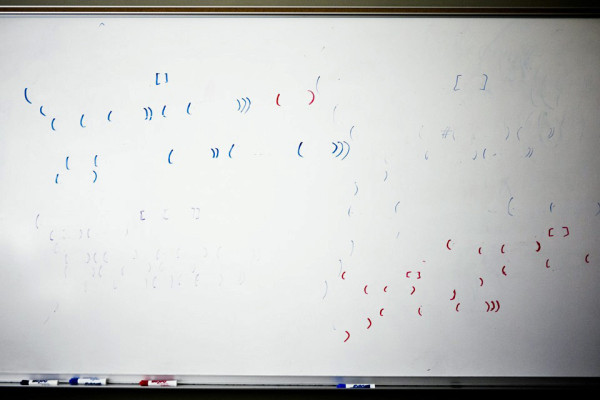PBS: Escaping Eritrea … [Read More...] about ካብ ውሽጢ ቤት ማእሰርታት ኤርትራ
THE FATE OF THE WORLD LIES IN BETWEEN BRACKETS
Uri Freidman, 1 Dec 2015, The Atlantic
A guide to the most important climate deal in years. [Possibly.]

“Parties [shall][agree to] to take urgent action and enhance [cooperation][support] so as to (a) Hold the increase in the global average temperature [below 2 °C][below 1.5 °C][well below 2 °C][below 2 °C or 1.5 °C] [below 1.5 °C or 2 °C][as far below 2 °C as possible] above pre-industrial levels by ensuring deep cuts in global greenhouse gas [net] emissions.
The precise target the parties set for an acceptable rise in the global temperature above levels before the Industrial Revolution could have implications for everything from how many hundreds of millions of people suffer from flooding and drought to how many plant and animal species lose significant chunks of their habitats. Many scientists estimate that if greenhouse-gas emissions continue unabated, the average temperature could increase by four degrees Celsius or more by the end of the century—a scenario that might, as Elizabeth Kolbert wrote recently in The New Yorker, “transform the globe into a patchwork of drowned cities, desertifying croplands, and collapsing ecosystems.” If countries instead abide by the pledges to cut carbon emissions after 2020 that they each made voluntarily ahead of the Paris climate summit, the average temperature will likely go up by at least two degrees Celsius, a less-than-catastrophic situation that could “still destroy most coral reefs and glaciers and melt significant parts of the Greenland ice cap, bringing major rises in sea levels,” according to The Guardian.
[Each Party][All Parties] [recognizing the principle of common but differentiated responsibilities and respective capabilities] [shall][should][other] regularly [formulate] [prepare], [communicate] [submit], [maintain] [update] and [shall][should][other] [implement] [fulfill] [intended][nationally determined mitigation [commitments][contributions][actions]] [nationally determined mitigation commitments and/or contributions] [a nationally determined contribution with a mitigation component], [, which can be in the form of co-benefits resulting from [its] [the Party’s] adaptation contributions and economic diversification plans] [programmes containing measures to mitigate climate change] (NDMC/NDMCC)
Take heart: At least all the parties agree that whatever they’ll be doing, they’ll be doing it “regularly.”
There’s a lot to unpack in this matryoshka doll of brackets, including words like “shall” and “should,” which speak to whether or not any Paris agreement should be legally binding for the parties who ratify it—a point on which the European Union and United States disagree. [Shall] suggests the parties are making a firm commitment; [should] indicates they’re merely heeding a guideline.
Another set of brackets discusses scaling up the $100 billion in “climate finance” that developed countries have already promised to provide developing countries by 2020 to help them cope with global warming and reduce their carbon emissions by investing in alternative energy sources. The world’s poorer countries have received only a fraction of that money since it was earmarked for them at the UN’s 2009 climate conference, and the Paris document proposes parenthetically that this fund be increased to an unspecified level through a “clear burden-sharing formula” among wealthier countries that aims for an “equitable regional distribution of financial resources.” If these clauses are cut or diluted, developing countries—many of which are bearing much of the burden of a high-carbon world but reaping few of the benefits—could abandon and ultimately scuttle the talks.
The brackets, in other words, could cement one of the most complex negotiations in history. Or they could reduce what seems like a promising 54-page draft agreement to a pile of stray words. Every grammarian’s favorite T-shirt slogan has been vindicated: Punctuation could really save [endanger?] lives—and perhaps the planet.
Related Story: The UN’s New Focus: Surviving, Not Stopping, Climate Change
